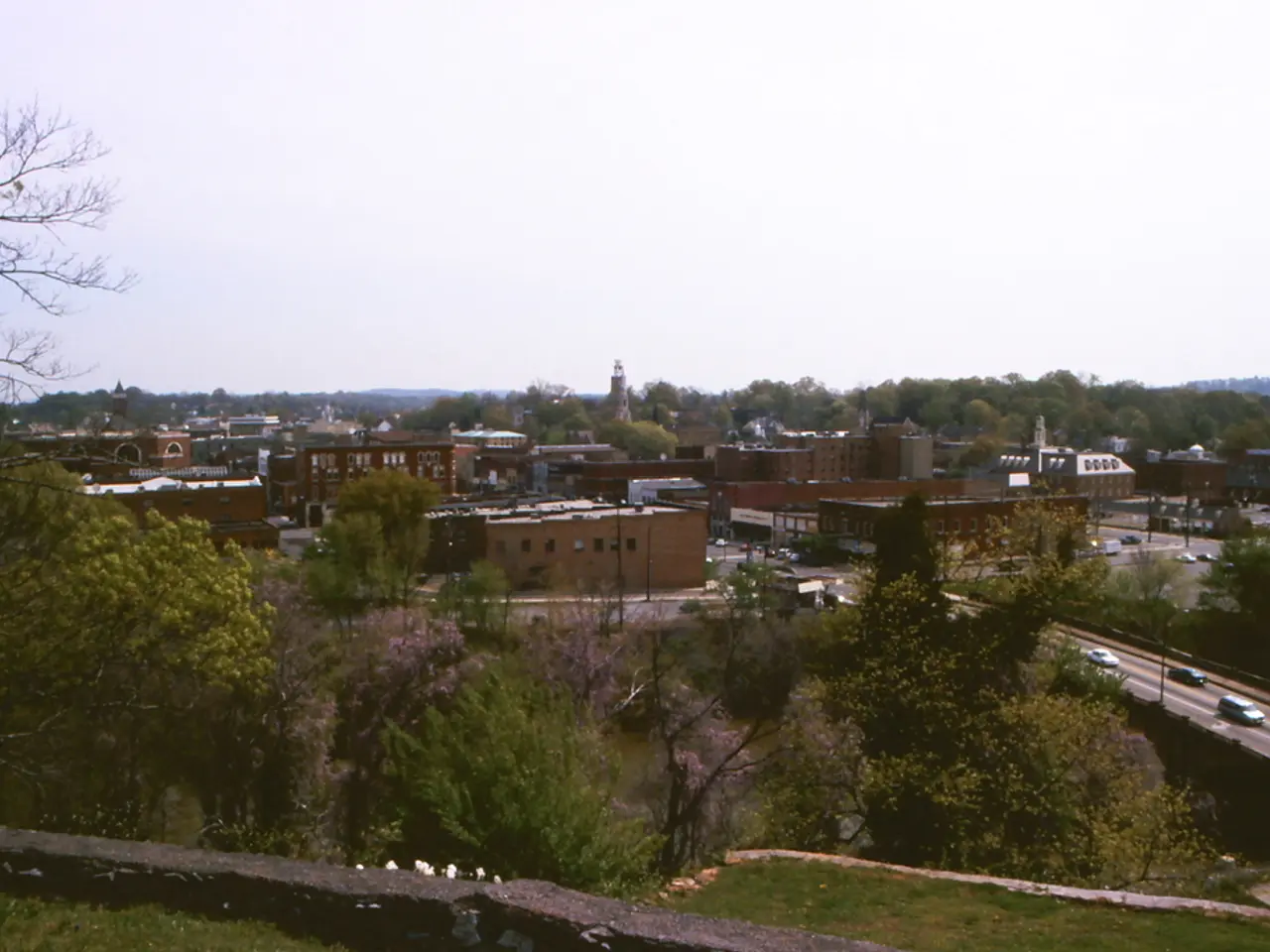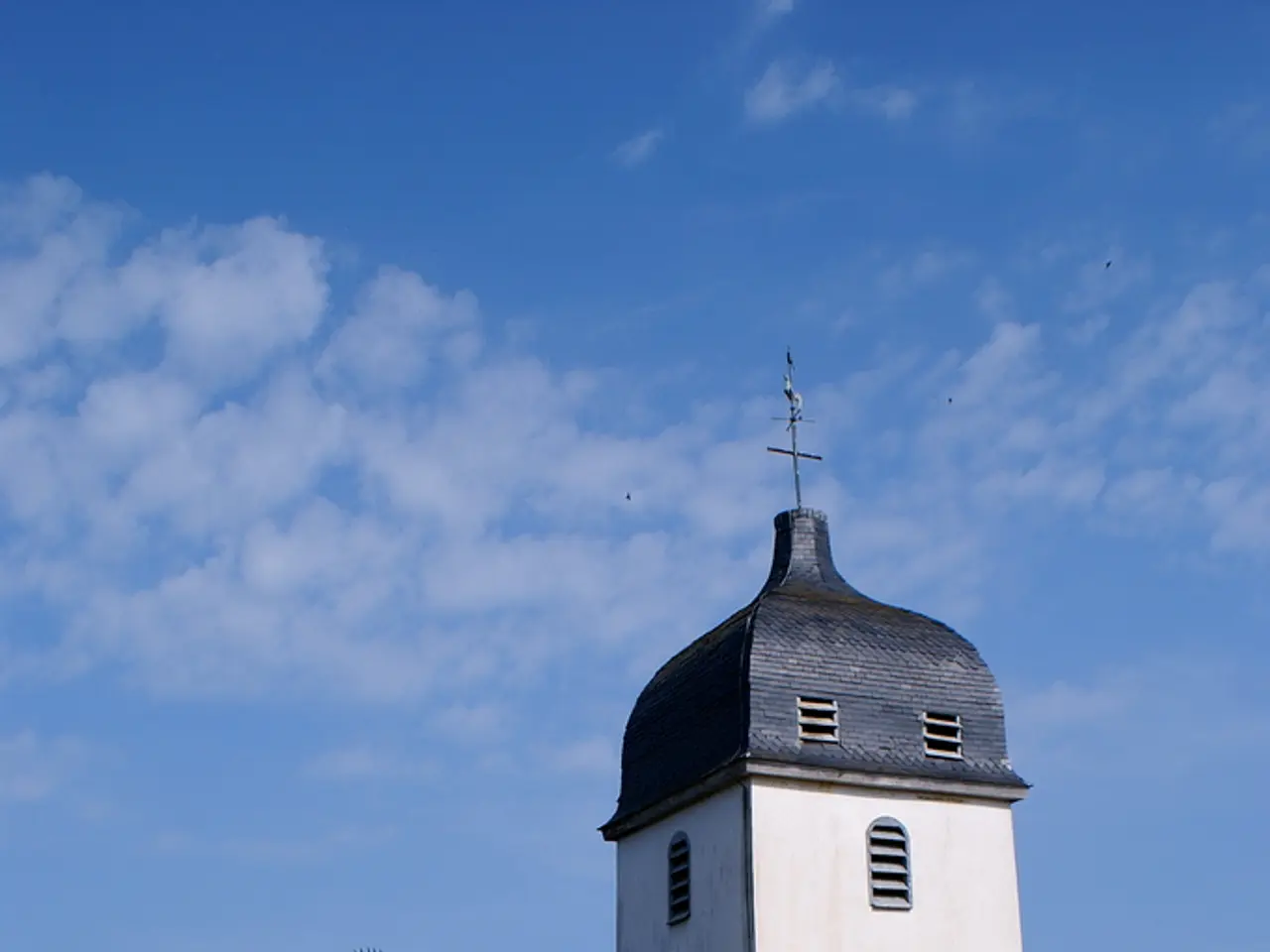Proposal Adopted by Commission for Food Labeling Harmonization Among Member States
In a turn of events, the budget freeze that's been gripping Karlsruhe since February has been shattered. On Tuesday, the city council, in a landslide vote, approved a relief package aimed at easing the city's financial woes by approximately 50 million euros this year.
The majority decided to trim funding for all cultural institutions by 1.3 percent this year, along with withholding 15 percent of subsidies for projects. This isn't all folks, the budget for welcoming conversations with freelance midwives will be sliced in half, and project funds for school social work will take a hit.
Three city councillors from the Karlsruhe List (KAL) and two from the Left condemned the move, as they didn't want these cuts to culture, youth, and social affairs to go through as is. "We can't get our heads and hearts together here," explains Sonja Döring of the KAL. "We can't say yes to the implementation of all measures," says Anne Berghoff of the Left.
Budget of 1.7 Billion Euros and a Looming Deficit
The city's budget boasts a volume of around 1.7 billion euros. Due to several rounds of cuts and adjustments to the tax screw, a deficit of nearly 100 million euros is looming this year. The culprit? The ailing German economy causing lower tax revenues. At the same time, the city's expenses are on the rise, particularly in the areas of social assistance, the clinic, mobility, and personnel.
With a deficit of almost 100 million euros, the city's budget would be unapprovable in the year 2025. Hence, the budget freeze was imposed in February - a first in Karlsruhe's history. Yet, other cities like Baden-Baden and Gaggenau have trodden a similar path recently.
Easing the Budget by 50 Million
The 50 million euros that have now been deployed are roughly split into two packages. Around 35 million euros will be siphoned from the capital and profit reserves of the city's subsidiaries, including the trade fair and the baths. This is a one-time effect that citizens may not feel the impact of immediately.
The remaining 15 million euros also consist of many one-time effects: numerous positions will be temporarily vacant in various departments - but not permanently cut. Mayor Frank Mentrup (SPD) accordingly downplays the savings package, asserting that ten of the 15 million will be achieved within the administration.
A Hot Autumn Awaits in Karlsruhe
The rest then comes under the microscope of so-called voluntary services - which the city is not obligated to provide. A proposal that gained traction was to make siblings in daycare centers, kindergartens, and after-school care no longer free of charge. This would have netted 2.28 million euros. However, it was bereft of a political majority, and it didn't even make it to a vote. Mentrup announces that it will be discussed again in a few months.
Even though the budget freeze has now been lifted, a hot autumn awaits in Karlsruhe, as the financial outlook is dim. And the next double budget for 2026/27 must be presented this year, for which a further 80 million euros must be trimmed. The mayors are already hard at work on corresponding concepts. This new list of grievances will be unveiled in September.
Austerity Round and Future Decisions
In the current austerity round to lift the budget freeze, the Greens had proposed, among other things, to exempt smaller cultural carriers from cuts and to make the ZKM and the State Theatre bear more of the brunt. There was no majority for this. Green city councillor Clemens Cremer also sought to spare the Adult Education Centre with his faction, but this didn't win any support in the council.
Detlef Hofmann from the CDU foresees, "Those who can't go along with the 1.3 percent cut in culture now will fall through the cracks in the autumn. Because the cuts that are still to come have a completely different dimension." "That's a whole different ball game," says Anton Huber from the SPD. And every measure hurts. It's not enough to just say what you don't want. Because somewhere you have to start.
Mathias Tröndle (SPD) thinks it's important not to cave in to those who shout the loudest. Stefan Noe from the FDP agrees: The path cannot be that those who are well-networked and write petitions are spared. Oliver Schnell from the AfD opposes a possible opt-out from the sibling regulation.
"We need a clear prioritization of topics and have to ask where we as a city want to go," says Volt city councillor Adina Geißinger. "It's not fun, but we have to make decisions," says Friedemann Kalmbach from Pro Karlsruhe.
The city council's decision to trim funding for cultural institutions and school social work projects is a part of the general-news discussion, as it reflects the financial struggles faced by Karlsruhe. The relief package aimed at easing the city's financial woes includes funds taken from capital and profit reserves of city subsidiaries, with a significant portion coming from one-time effects.
With a surplus of approximately 50 million euros deployed, the city still faces a deficit of nearly 100 million euros due to the ailing German economy. The city's financial outlook remains bleak, as another 80 million euros must be trimmed from the next budget for 2026/27, which will be presented this year. The future decisions made to address these financial issues will have a significant impact on various aspects of the city, including culture, youth, and social affairs.




